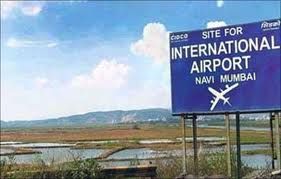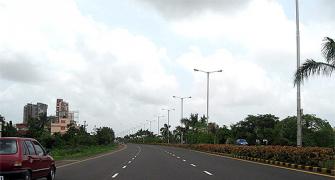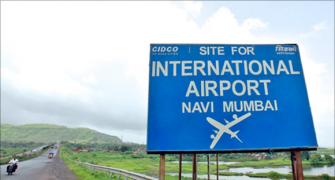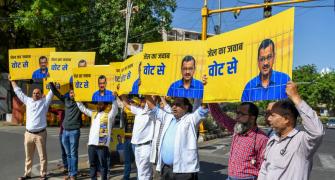 The City and Industrial Development Corporation, the nodal agency for developing the Navi Mumbai international airport, is putting in place a comprehensive financing and development strategy for the airport.
The City and Industrial Development Corporation, the nodal agency for developing the Navi Mumbai international airport, is putting in place a comprehensive financing and development strategy for the airport.
It will push a ‘hybrid-till model’ to calculate aeronautical rates for the proposed airport.
Under the hybrid-till model, a portion of non-aeronautical revenue (commercial revenue) at the airport is taken into consideration while fixing the landing and parking charges, user fees and other aeronautical charges.
Developers favour this model over the single-till model, which uses the entire non-aeronautical revenue to offset aeronautical charges.
Cidco will also finance the pre-development cost of Rs 1,900 crore (Rs 19 billion), comprising Rs 1,400 crore (Rs 14 billion) towards land fill and Rs 500 crore (Rs 5 billion) for the shifting of transmission lines.
This cost will be loaded on the joint venture company as the interest-free loan. Cidco’s vice-chairman and managing director Sanjay Bhatia told Business Standard: “We are going in for the hybrid-till model, which will be on the similar lines of the Mumbai airport.
“The entire project will be developed on 70:30 debt-equity ratio.”
On Monday, the Maharashtra government and project-affected persons had reached a landmark agreement over the compensation for the acquisition of 671 hectares of land.
The Airport Economic Regulatory Authority had in 2011 adopted the single-till model for rate calculation and private developers challenged the regulator’s order before the Aera Appellate Tribunal.
Cidco will pitch its case to Aera to get the hybrid-till model approved for the Navi Mumbai airport.
“The project has been
Will traffic flow to the Navi Mumbai airport be left to market forces or will it be through a government order,'' said an executive with an airport development company.
According to Amber Dubey, partner and head (aerospace and defence) at global consultancy KPMG, the agreement between the government and PAPs is a great achievement.
“'This will be beneficial not just for the landowners but for Mumbai as a whole. India’s financial capital is on the verge of being choked, with the land-constrained Mumbai airport fast approaching its traffic limit.”
According to experts, Mumbai airport is growing at the rate of 10 per cent annually and is expected to reach full capacity of 40 million passengers per annum by 2015 under an unconstrained growth scenario.
Owing to capacity constraints, experts rule out further expansion at the Mumbai airport.
Both domestic and international airport development firms have evinced interest in the Navi Mumbai international airport project.
According to the State Support Agreement, Mumbai International Airport has the right of first refusal to develop the airport.
However, for this, MIAL needs to bid and be within 10 per cent of the highest bidder and its offer should match the highest bid.
GVK Group did not respond to an email query on the issue.
When contacted, a GMR group spokesperson refused to comment.
A Tata Realty and Infrastructure Limited spokesperson said: "We have consistently expressed our interest in development of the Navi Mumbai airport.
“We will have a look at the RFQ document to see if TRIL would be eligible to participate in its development".










